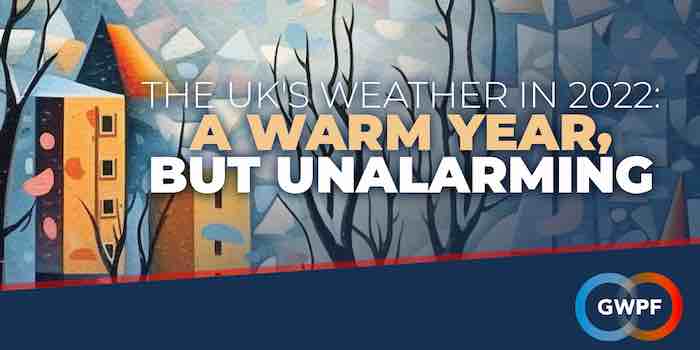By News on the Net -- Global Warming Policy Foundation——Bio and Archives--June 15, 2023
Global Warming-Energy-Environment | CFP Comments | Reader Friendly | Subscribe | Email Us

London - The Global Warming Policy Foundation has just published its annual review of the UK's weather. Once again, author Paul Homewood finds little to be alarmed about.
Although 2022 was a comparatively warm year, the long-term mean temperature has been largely unchanged since the turn of the century. Rainfall and storm trends are, respectively, unexceptional and favourable.
Homewood says:
"The UK climate remains absolutely benign. The changes we have seen have been small, and mostly thoroughly welcome. Who would complain that we are seeing fewer bitterly cold winters?"
GWPF director, Dr Benny Peiser said:
"It's extraordinary that we are impoverishing our economy and households in an utopian attempt to achieve Net Zero at any cost, when the UK's long-term climate trends have remained relatively stable and pleasant."
According to the Met Office, the UK climate ‘is continuing to change’,1 whilst weather is becoming more extreme.2
But what does the actual evidence tell us? Using official data up to 2022, from the Met Office and other sources, this paper examines UK climate trends, and assesses the truth of
these claims. The results are as follows:
In short, although it is slightly warmer than it used to be, the UK climate has changed very little. Long-term trends are dwarfed by the natural variability of weather. Nor is there any evidence that weather has become more extreme, or will become so in future.
View Comments
News from around the world